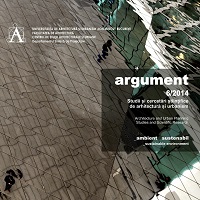MEDIEREA URBANĂ CA INSTRUMENT DE TRANSFORMARE URBANĂ SUSTENABILĂ
URBAN MEDIATION AS A TOOL FOR SUSTAINABLE URBAN TRANSFORMATION
Author(s): Ognen Marina, Bojan KaranakovContributor(s): Andrei Ardeleanu (Translator), Beatrice Mareş (Translator), Maria Ghement (Translator)
Subject(s): Architecture, Rural and urban sociology, Economic development
Published by: Editura Universitară “Ion Mincu”
Keywords: transition; Skopje; urban transformation; mediation; development;
Summary/Abstract: Urban transformation in most of the post-transitional countries of South East Europe has created sharp inequalities, economic decline and dissolution of existing social strata. Amidst the societal and economic changes the fundamental knowledge of the nature of cities has been neglected that restricts the potential for profound understanding of the processes that are shaping our cities. The transition from one societal system to another has been frequently present in the history of the city of Skopje. It has been implemented through the series of erasure of the previous followed with ideological justification of the necessity and urgency of changes in the city. This frequent erasure of parts of the city followed by the new and urgent renewal demands a strategy for survival of the city. Through the research of the patterns of urban transformation and the reaction of the city to the emerging differences and inequalities in the urban structure we suggest the adaptive delay as a new paradigm that could provide a comprehensive understanding of the process of urban transformation in our city. Urban mediation has been recognized as the most profound tool for sustainable development in a multicultural society with hybrid formations of social practice and resulting urban structure. The urban mediation is not an attempt to level down the differences or to tolerate parallel existence of the “other”, but, rather a generative process of creation of unifying whole that is always more than the sum of its parts. The concept of urban mediation in Skopje has been explored as a historic reference in the city through investigation of the novel processes of transformations in the urban structure in the last two decades of post-socialist transition.
Journal: Argument
- Issue Year: 2014
- Issue No: 6
- Page Range: 225-242
- Page Count: 18
- Language: English, Romanian

